How about spending a week in a ‘jungle lodge’ with our own guide in the Amazonian rainforest? Sounded pretty cool and as we don’t speak Portuguese or Spanish (yet 🙂 ), we decided that it’s worth the extra money to learn a bit more about plants, trees, and animals, and see the life outside of Manaus in a company of a local guide. We have found a fairly priced place to go (it was still cheaper than average prices at hotels…). We got full-board as well, 7-8 hours of guided trips, and English speaking guide only for us, so this was kind of the luxury part of our budget trip. Except that we will be away from civilization.
Where to stay in Manaus
Before or after your rain forest experience, the best is to spend a couple of nights in Manaus.
You can do it on budget, as we did, and stay, for example, in this cute hostel. There is even a tiny pool to drip after your sightseeing days.
If you are looking for something mid-range or more, this hotel is a perfect choice in the center, or this four-star one a bit further away yet still within walking distance.
Why go on a multi-day trip to the rainforest?
We love traveling on our own. However, there are unique locations, where an organized tour is a must. And it was one of those cases.
Why do organized multi-day trips worth it?
- you sleep in a cosy lodge in the rainforest
- your transportation there and back is secured (hotel pick up from Manaus)
- you don’t need to worry about what to eat
- full of adventures that you would hardly experience: pink dolphins, farm visits, local family visits, meeting with indegenous people, go fishing, swimming, and learn about the plants and animals.
You can browse tours HERE.
Trip to the Amazon rainforest
We got a ride from Manaus (where we spent the previous days) through the recently built bridge over the Rio Negro. Earlier it was only possible to cross by ferries/boats to the other side of the river. We drove about an hour through a few villages and smaller and even smaller roads. In the end, we took a little boat to reach the place on a little island next to the mainstream of Rio Negro. The water level was still high, fields and some buildings were flooded as we observed from the car. So were some of the bungalows. Ours wasn’t, but you could approach it only through the water from the main building/restaurant.
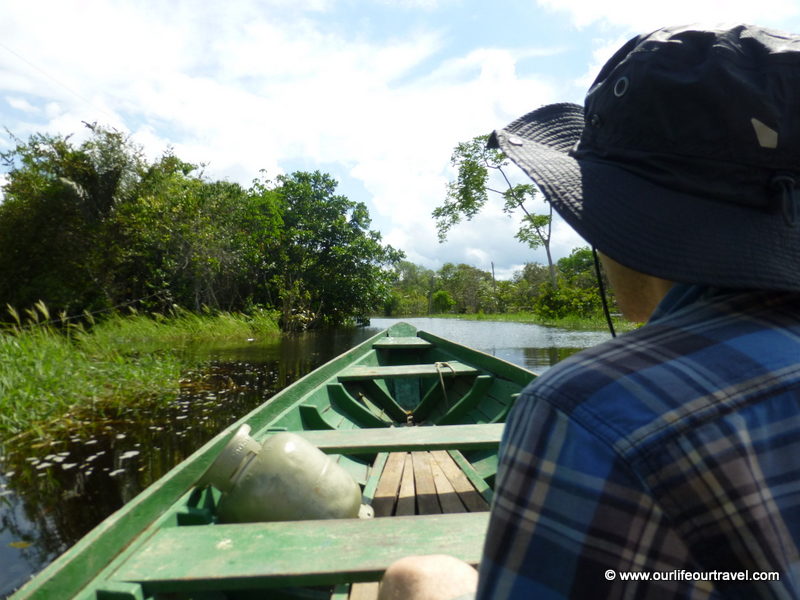
In our jungle lodge on the Rio Negro
We got up every day at around 7 am, ate breakfast, and then had different programs until 12 pm. After the lunch and siesta, another program started from 15 till 17/18. The day ended with dinner. The place had electricity only during/right after dinner for about 2 hours, by running a noisy generator. And of course no internet. Perfect relaxation!
The rain was the other event which had a kind of good timetable. It was raining (well, pouring) every day in the afternoon, but it varied few hours. But after the rain, it was again sunny and hot.
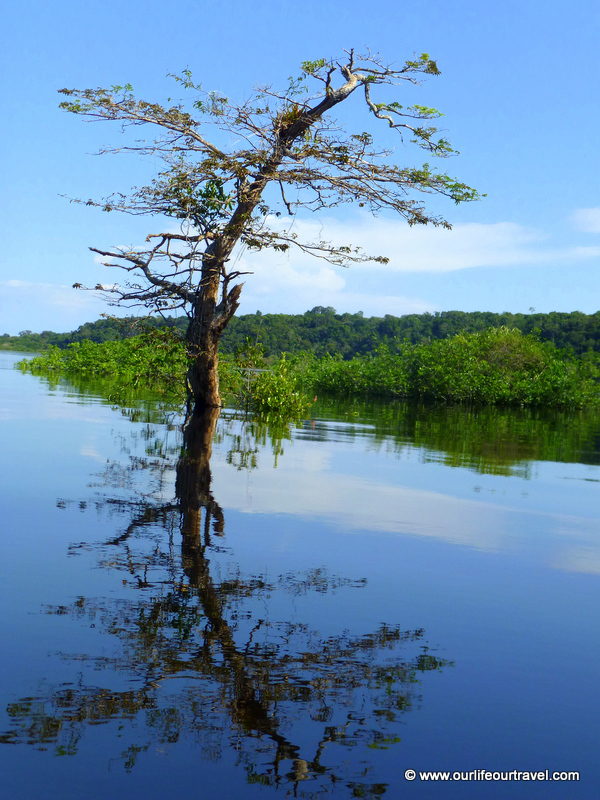
Our guide, Fabio, lives with his family in the village close by. He speaks good English, although never went out of Amazonia in his whole life! His wife is from one of the indigenous tribes and they had 3 or 4 children. We met only with one of their daughter. He was in charge of our everyday program.
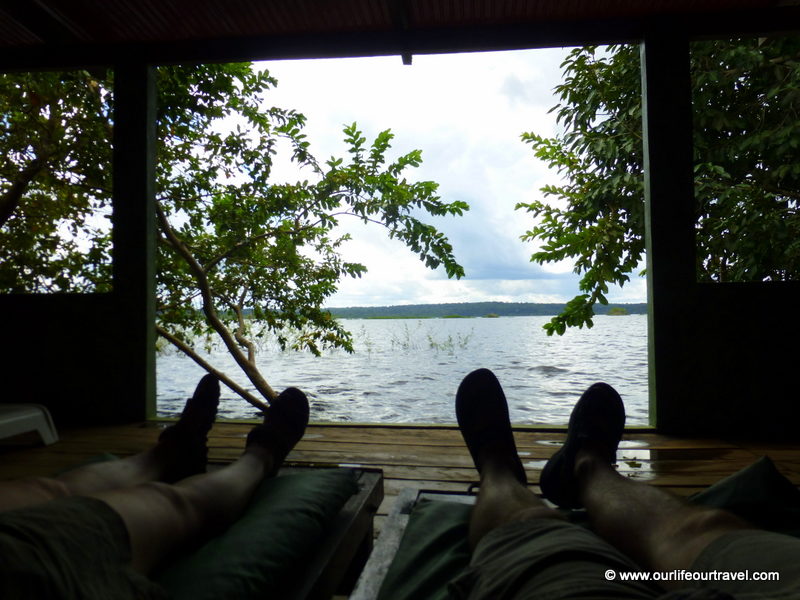
The food
We ate different fish, chicken, manioca and a few vegetables. We visited a local farm where different plants were grown and a little factory where manioca flour is made from the roots. And the workers get small money for the whole day in the hot next to the loud machine. My favorite fruit was this (check the picture!) long green thing with fluffy and sweet white inside. I have not seen it later, and I forgot the name of it, but if anyone knows, please let me know 🙂
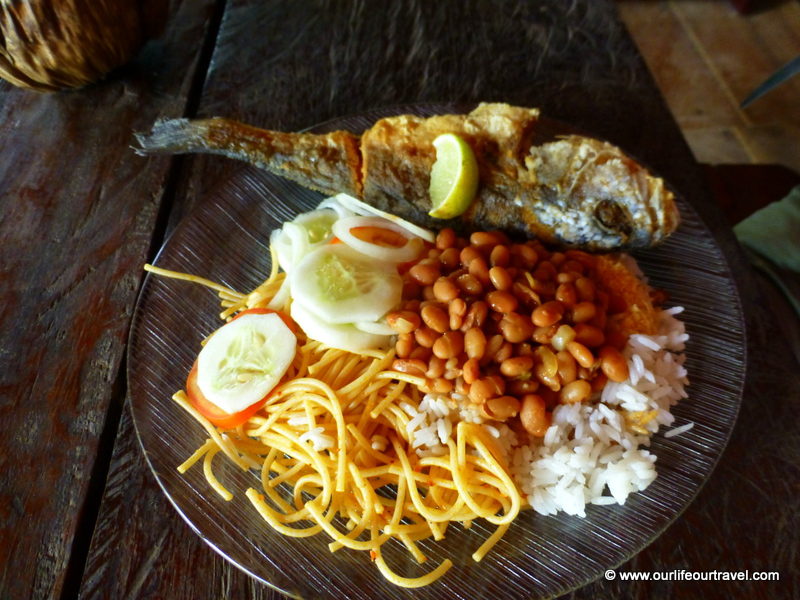
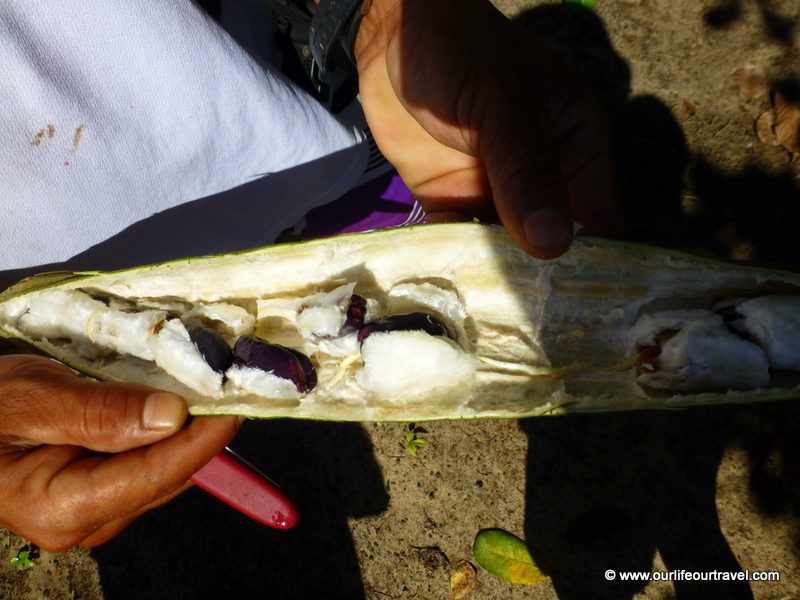
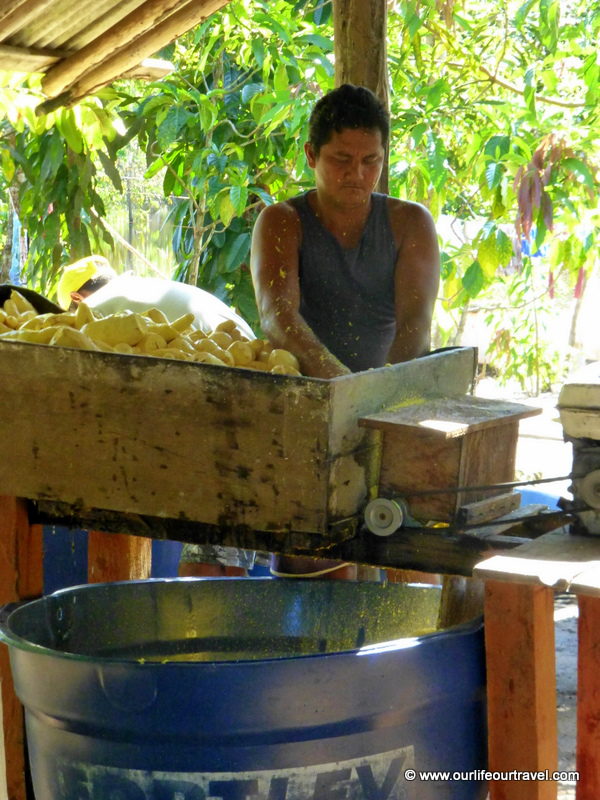
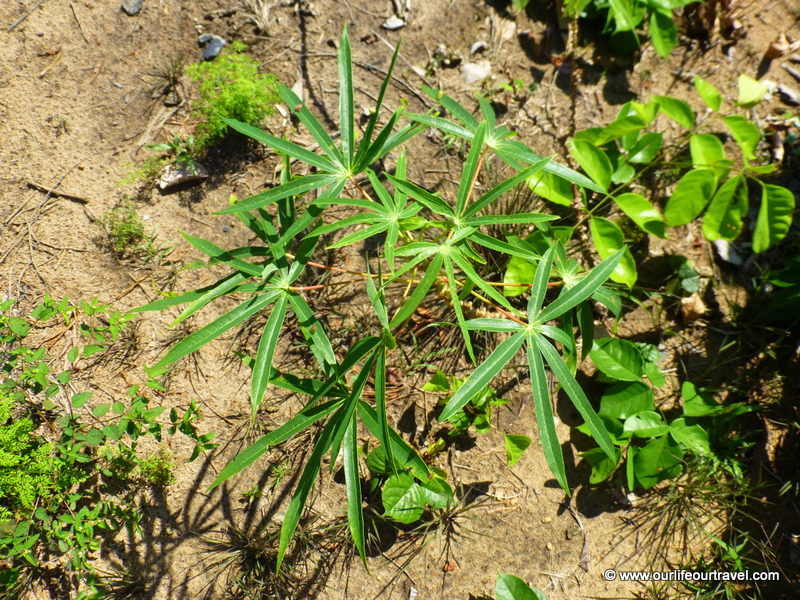
It was also interesting to observe ferries and boats transporting so many things up the river. As the road network does not really exist, or if it does it takes a lot of time to drive through, almost everything is transported by the river. Even vehicles.
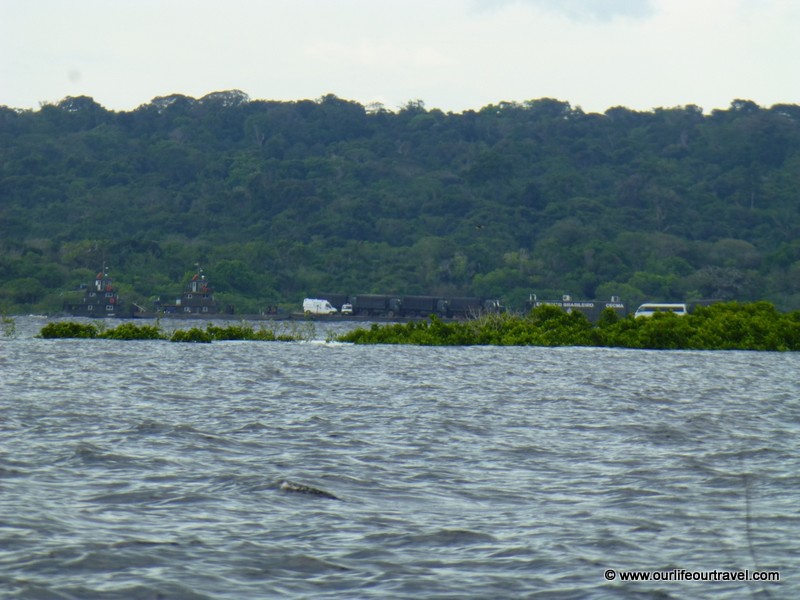
Trips in the jungle
We had a few canoe trips on the Rio Negro. Already on the first day, we have experienced how the rain feels..we soaked it totally and then our clothes dried in about 30 minutes. And the trees were so huge and tall! We were at their lowest crown level due to the high water, but it didn’t change too much in the view. The forest was dense, sometimes Fabio had to use his machete to cut some lianas or branches to fit our narrowboat between.
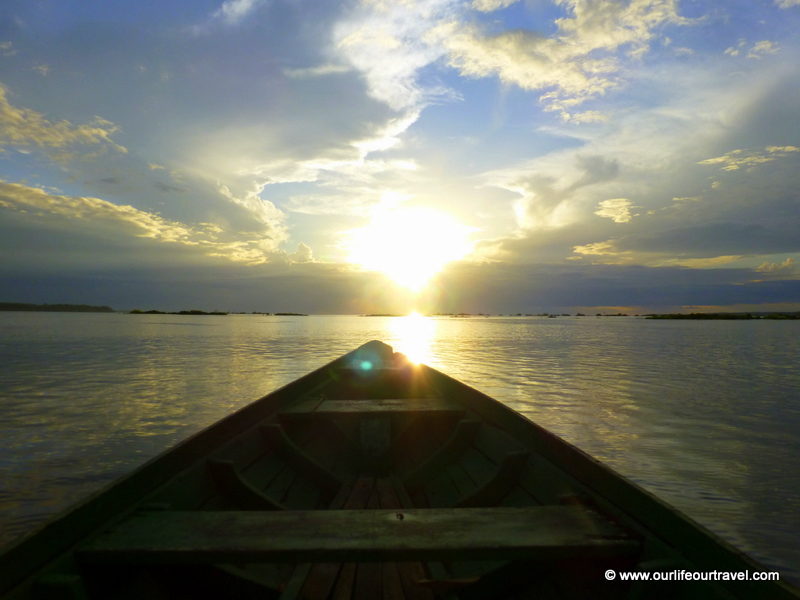
We were spotting monkeys, many birds and millions of spiders, and other small insects. They kept jumping/falling on us from the trees. He also caught us little alligators to see them from close, then we let them go. We went fishing for piranhas, and caught some! That was Karol’s first time fishing ever..not a bad start! 🙂
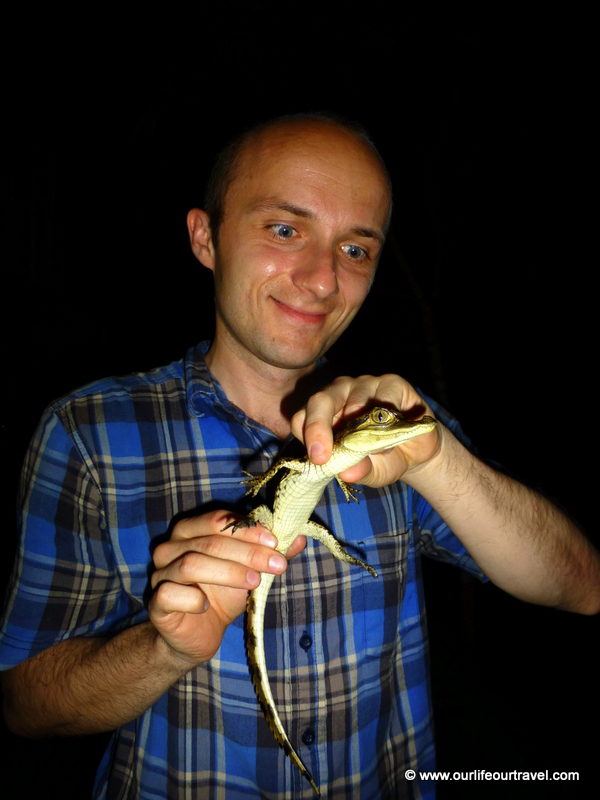
Indian village near Manaus
We had visited one of the indigenous villages as well, where the tribe lives from tourism and governmental support nowadays. There are about 240 indigenous tribes in Brazil, and most of them live from tourism, and there are about 65 which are ‘uncontacted’ and isolated from the global society. Check wiki if you would like to know where are they and how were they discovered. In the village we have visited, they sell crafts and held dances in traditional clothes for tourists. They do fishing and small farming but their kids go to Manaus to school to receive the education. Three tribes live close to Manaus. I think the best part of the visit was to try fried termites. I was too scared to eat alive larvae which were also offered to us. Now, I think that I should have tried, but there, I didn’t feel enough courage. Not so easy to overcome our western eating habits.
Book your trip here!
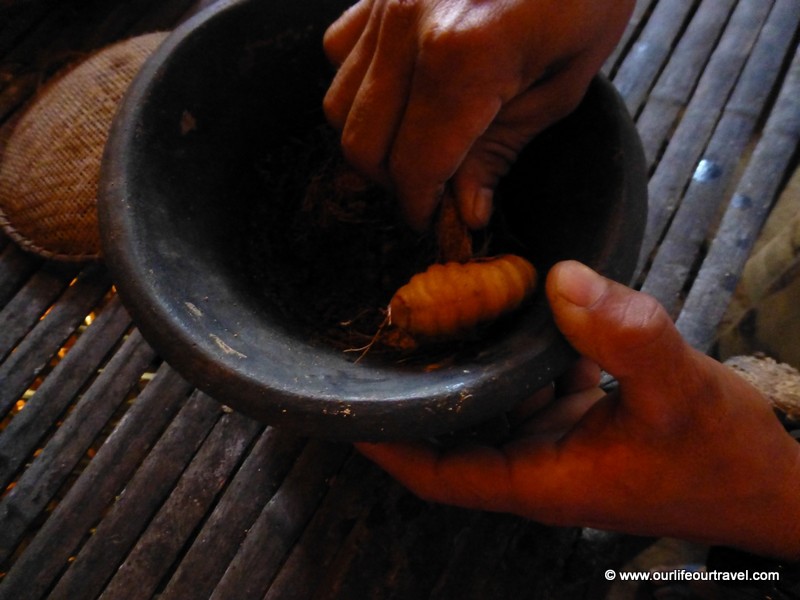
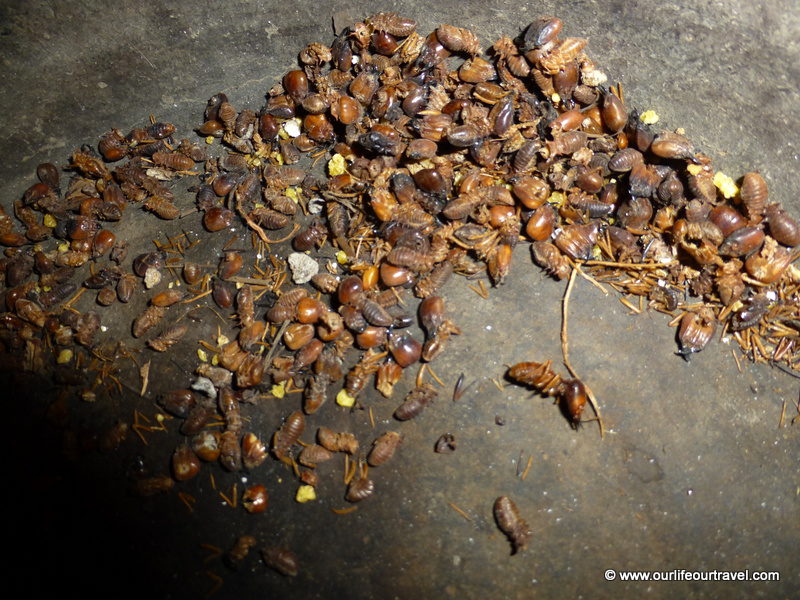
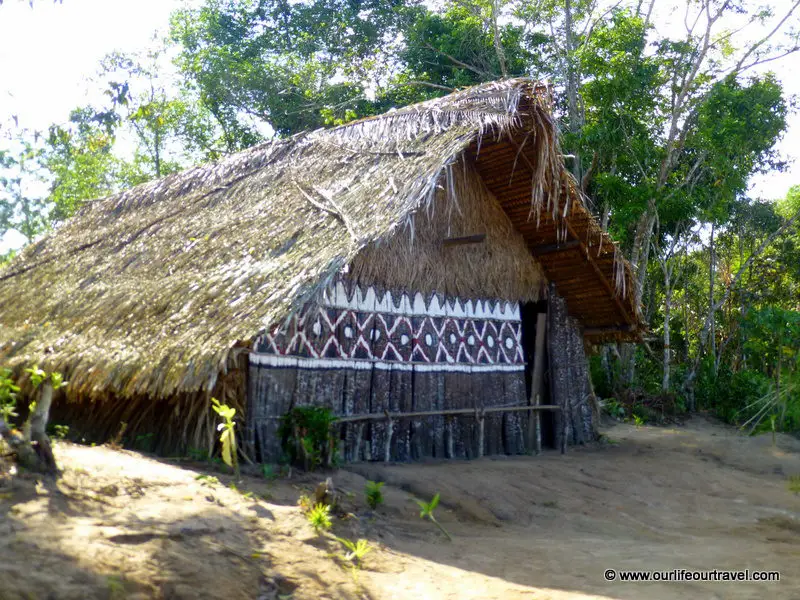
Visiting a local family
We have spent one night with a local family, sharing food and sleeping in hammocks (with insect nets of course). That night could have been much better if we would speak Portuguese because translating through Fabio was a bit circumstantial and not that nice conversation.
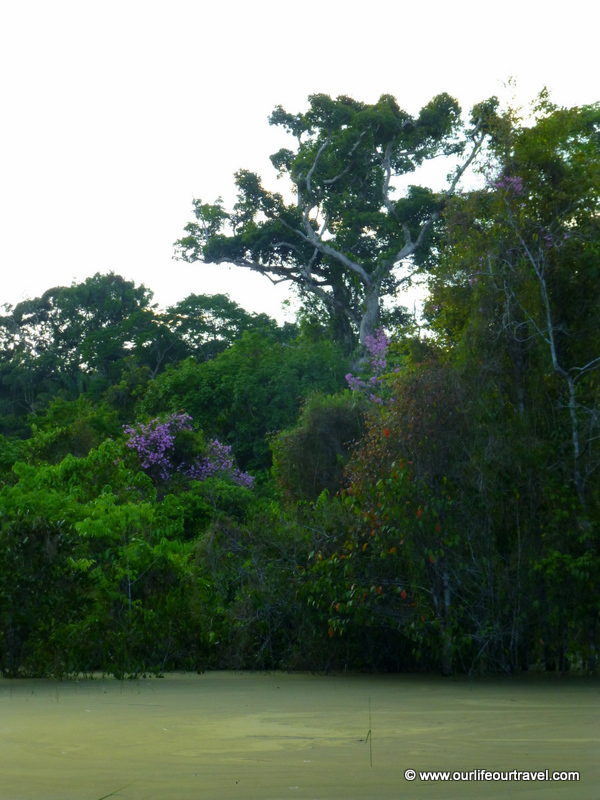
We had some chilling time with locals and just swim in the ‘river’. First, I was afraid of piranhas or other dangerous animals, but as locals and kids were also in the water, I thought I should be safe, I had no problems and I managed to cool down myself and swim around. Later, we were fishing and caught some of them.
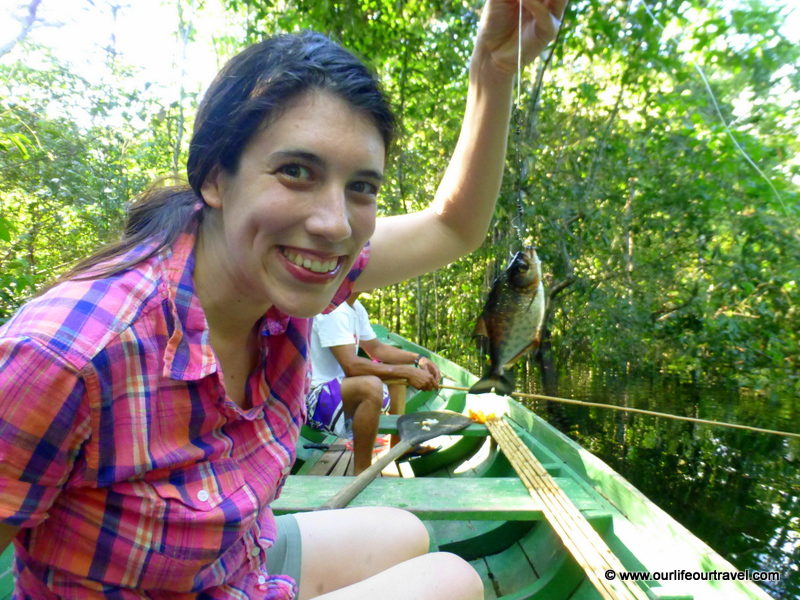
In this sense it is lucky that we were here after the rainy season, now the water level was about 15-20 meters higher than in low water times, which meant few kilometers in distance, where the river starts during the dryer part of the year. The buildings (most of them at least) are built on 3-4 meter high wooden construction, so they can keep dry (above water level) all-year-round.
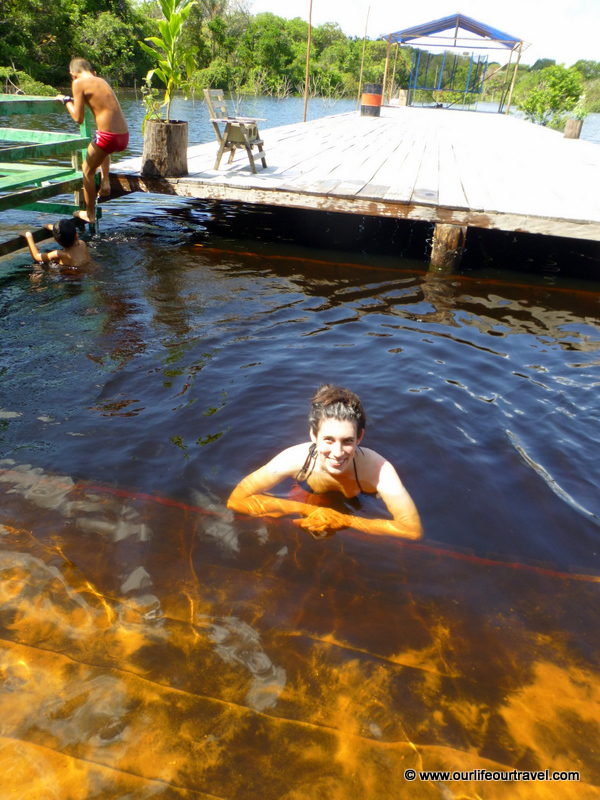
Swimming with pink dolphins
This long-awaited program was the downside of the whole stay. Read here why we were disappointed and felt sorry for these gorgeous animals.
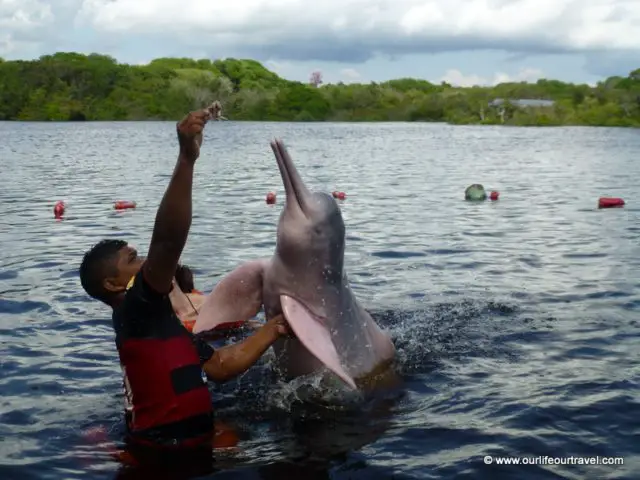
Sleeping in the rainforest in a hammock
Another night we have spent in the forest, that was very much our type of adventure! First, we took the boat and then had a shorter walk. This time also an American couple joined up, who weren’t really in hiking shape, so one of them spend the time in our camp while we were walking around. We hung our hammocks, Fabio made dinner, and the next day he showed us around. We were looking for tarantulas and also seen termites.
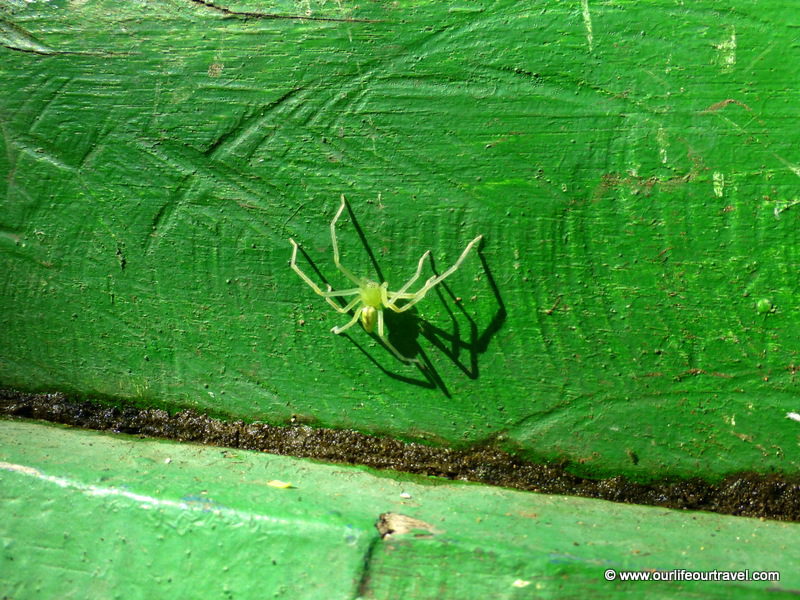
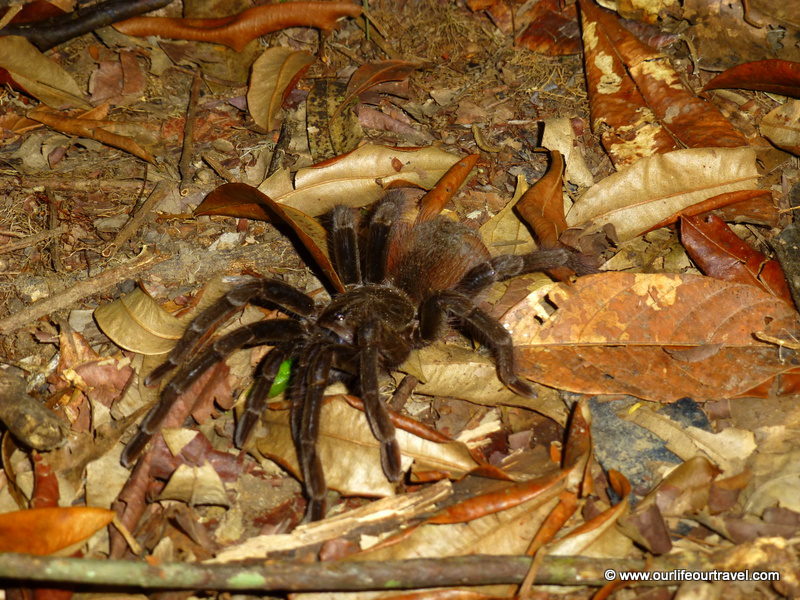
Checked different edible and non-edible trees. He also showed what they use for house construction, etc. And I have learned if he gives something to us to smell, it does not mean that I should taste it. He just gave me pieces of a tree-bark to smell. I was like, oh, I know this smell, and then I immediately tasted it. Luckily it was edible and they indeed used as a spice, but I became more careful afterward.
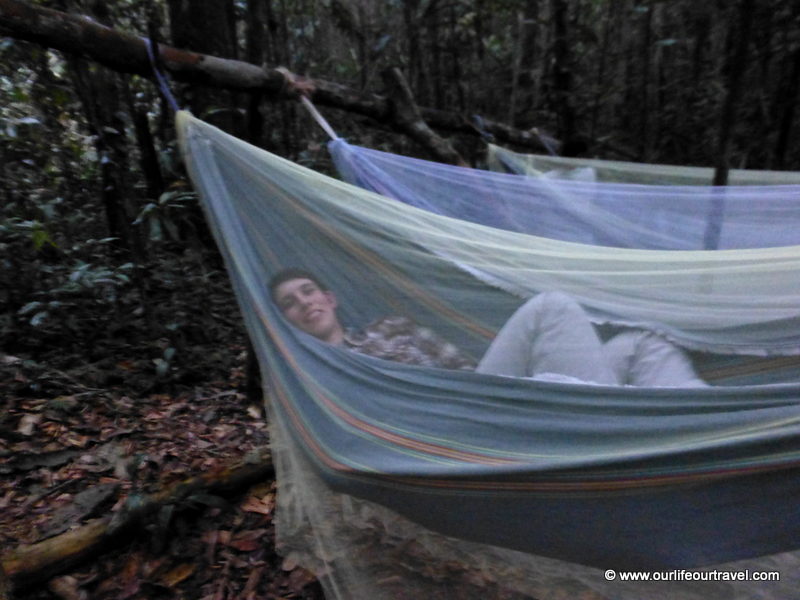
Besides the canoe trips, this was the most fun day we had! But after a week we had to get back to Manaus and make sure we can get a boat up on Amazon (Rio Solimoes) till the Colombian-Peruvian border.
Book your trip to the rainforest here!
About the Author
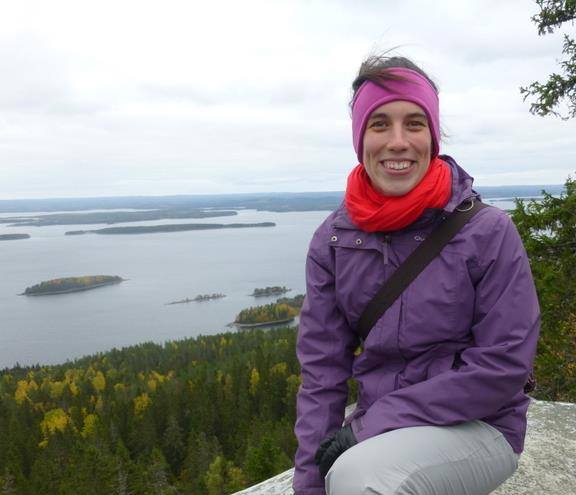
Katalin
Katalin is a Lapland-based outdoor enthusiast who loves hiking, road-tripping, and traveling with her family. She spends her free time far away from civilization in one of the national parks around the world, explores off-the-beaten-path places, or hops on a road trip with her kids in an RV.
Read more about her adventures and the blog.

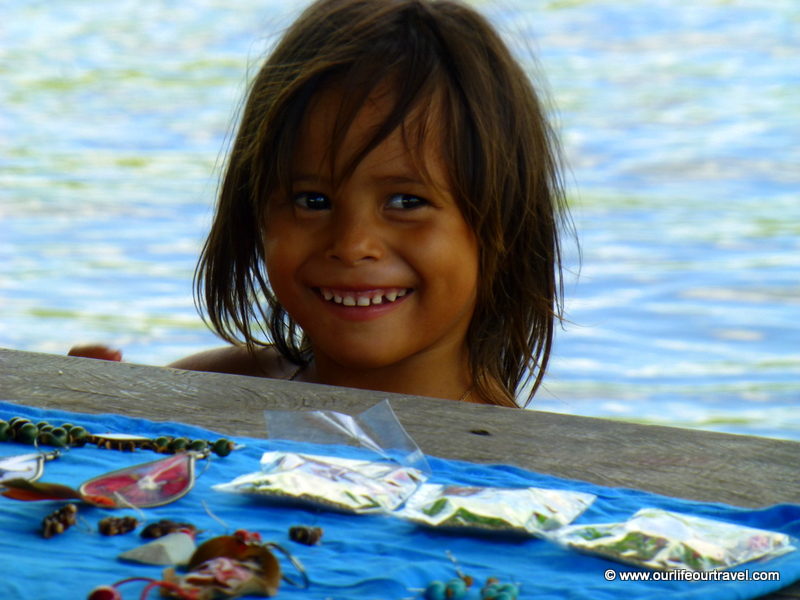
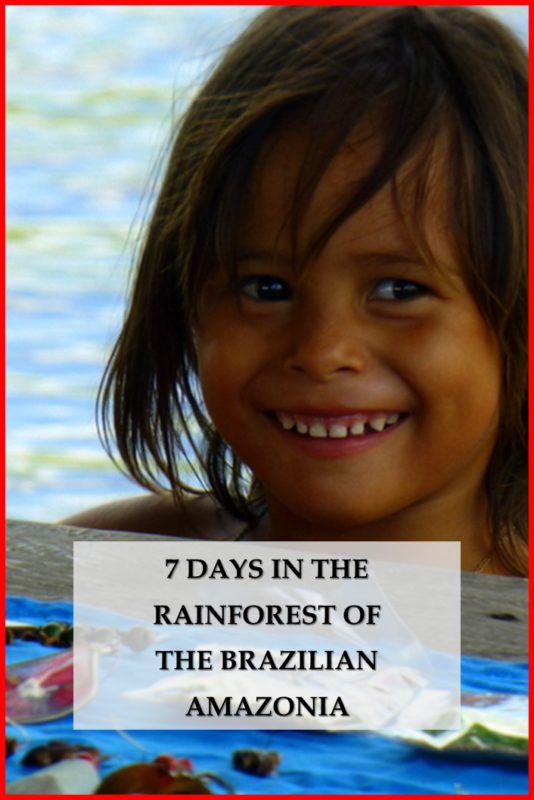
I’m just blown away by what an interesting adventure this is filled with so many things I have yet to experience – wouldn’t even have thought of going there until I read your amazing blog! Sleeping in a hammock, pink dolphins, seeing tarantulas – far out – we need to do this :O
I’m Stephanie rmontgomery from (CA), Los Angeles. Great article. I really enjoyed very much with this articles.
Pingback: Still on the Rio Negro – the rest of the 7 days – Our life, our travel
You are so brave! This trip is on my bucket list but I am unsure if I will ever be brave enough to do it!
Don’t be afraid! You will eat weird things only if you want 🙂 There are always some other options (mostly fish).
You are so brave eating termites, Urgh! It sounds like an amazing adventure and such an authentic experience. I would live to see the Amazon someday.
They were like chips! That’s what I told myself 🙂
What a great trip!! I wouldn’t have been brace enough to eat the bugs either, but gator is good! 😉
Thanks 🙂 Gators were too small to eat… and we haven’t met the big ones luckily!
Beautiful pics! I was just talking about visiting the jungle yesterday. I think getting a guide, like your Fabio, would be the perfect solution, especially if he’s also a local villager. You can learn so much more authentically about a place. Your trip sounds amazing!
Thank you! Yes, you also should hire a guide if you would like to do more than a day trip!
This was a really interesting post and it sounds like you have a great adventure. I am fascinated by the lives of indigenous tribes in this region, and bet your visit to the village was particularly interesting.
It was interesting to see how they live, although it is a bit further from the traditional way, still totally different lifestyle than ours!
Ah…you are so adventurous!! I am trying to explore new foods but no mystery fruit and no bugs…yet!
We still have to be more courageous but worth it!